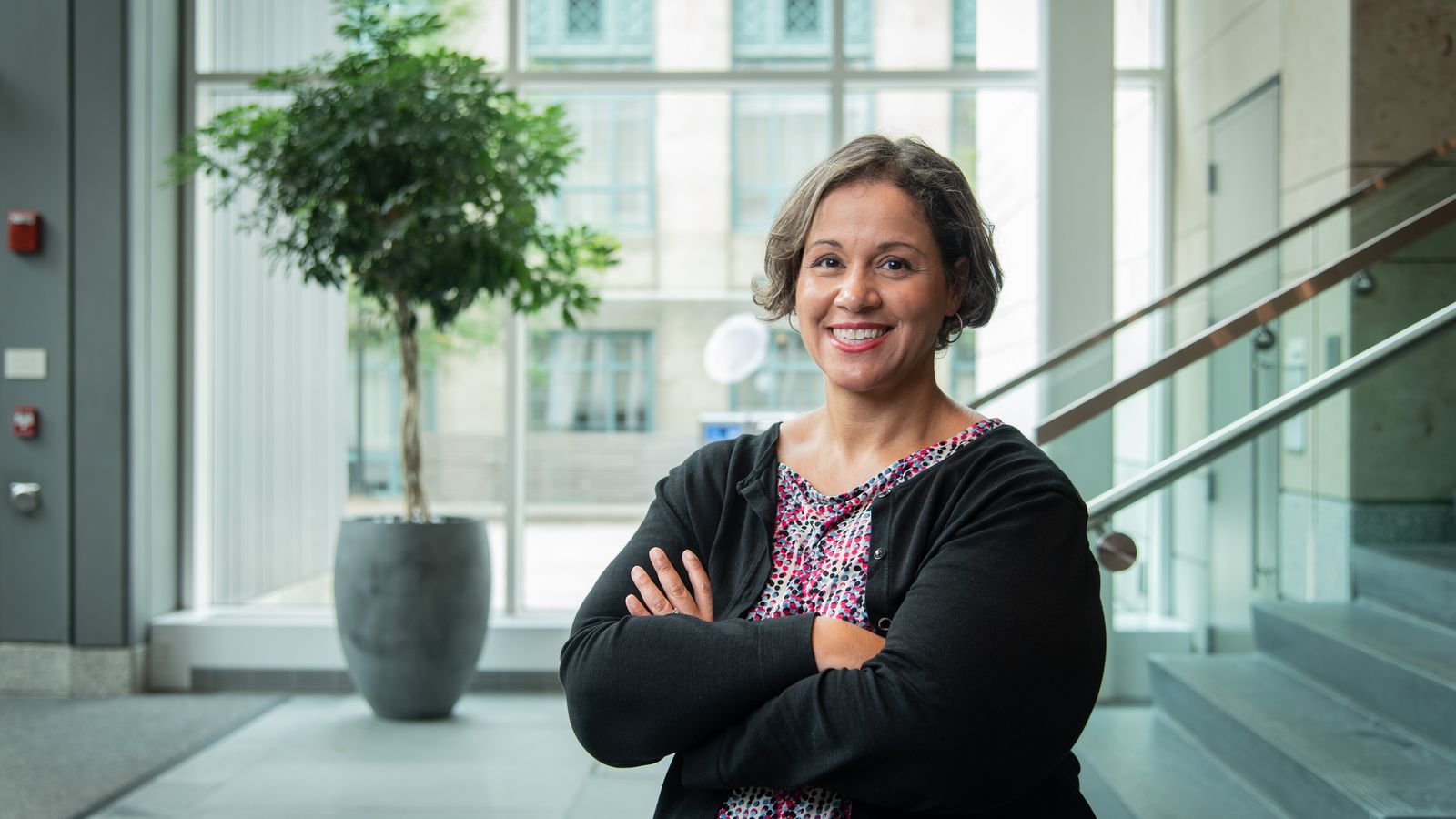Treating Opioid Use Disorder Isn’t “One-Size-Fits-All” Says BUSSW Professor

“It takes a village.” The phrase may sound familiar but it rings particularly true as BUSSW associate professor Dr. Linda Sprague Martinez joins a massive research initiative with an ambitious goal: to reduce opioid use disorder in Massachusetts by 40 percent. Researchers and practitioners from state agencies and institutions will leverage their diverse expertise and partner with 16 heavily impacted communities to develop a range of community plans.
“Bringing together experts and practitioners from multiple sectors will prompt conversations and idea-sharing around interventions and the best way to implement them,” Sprague Martinez says. “We will use a community engagement process to gather input from local stakeholders to inform a menu of intervention options. This will help ensure that the plans are aligned with each community’s priorities and goals.”
The multi-disciplinary collaboration is part of an $89 million award to a team of Boston Medical Center and Boston University researchers from the National Institute on Drug Abuse (NIDA), as part of the National Institutes of Health (NIH) Helping to End Addiction Long-term (HEAL) Initiative. One of only four sites in a $350 million national study called HEALing Communities, the Massachusetts team (one of 3 that have partnered with a School of Social Work) will test and develop effective strategies for getting proven prevention and treatment methods to the people who need them.
Led by Jeffrey Samet, MD, MA, MPH, chief of general internal medicine at Boston Medical Center (BMC) and a professor at Boston University’s School of Medicine and School of Public Health, the study is much-needed as the Massachusetts Department of Public Health reported nearly 2,000 opioid-related overdose deaths in the state in 2018. NIDA ranks Massachusetts among the top 10 states with the highest rates of drug overdose deaths involving opioids.
The coming-together of different core areas —such as health economics, implementation science, and community engagement, among others with community coalitions — is what Sprague Martinez considers a better “team science” approach to addressing community health issues, such as opioid overdose. So far, she is impressed by the willingness of people on the research team to listen, learn and support each other. Sprague Martinez, for example, is gaining a clinical perspective on opioid use disorder from BMC practitioners who are experts in addiction science. She, in turn, brings her macro social work expertise: thinking about intervention through a community and organizational systems lens.
“Anytime you are going to intervene in a community, you need to understand how that community works and what makes it tick,” Sprague Martinez says. “There is a social system with rules and norms that influence a person’s decisions. All of these factors need to be considered when developing best practices for intervention in each particular community. It is not as easy as a one-size-fits-all solution — communities are complex.”
Known as HEALing Communities, the national study is being carried out in partnership with the Substance Abuse and Mental Health Services Administration (SAMHSA), which provides support for many of the local prevention, treatment and recovery support services to be studied. The approach will test the impact of a community-engaged intervention with a set of evidence-based practices delivered across healthcare, behavioral health, justice, and other community-based settings. The key is to include local leaders and stakeholders to create authentic relationships and work with existing politics, infrastructure, and resources.
“Local people know the community best,” Sprague Martinez says. “They know what barriers are in place around a particular intervention. Our goal is to meet the community where they are to determine how to implement evidence-based sustainable interventions that will work.”
The impact of social systems on individual life changes was the very reason Sprague Martinez got into the field of macro social work. While working as a mental health clinician in immigrant communities and communities of color early in her career, she often became frustrated at systems such as welfare, child protective services, and immigration services. “There were these broader systems that my clients had to navigate and that were impacting their well-being, yet as a clinician, I wasn’t trained in it.”
A colleague encouraged Sprague Martinez to apply for a position with the Office of Minority Health to be more involved in changing these systems, and her career grew from there.
“If we are really going to improve individual health and address health inequity, we need to change social systems because they aren’t designed to work for everyone,” Sprague Martinez says. “For me, social work really highlights that.”
She is excited to bring that vital macro perspective to the HEALing Communities study as part of the Community Engagement core. “When you have the government, science, and the local community working together in a very targeted way, you can create powerful opportunities for impact.”
Article by Kristen Walsh